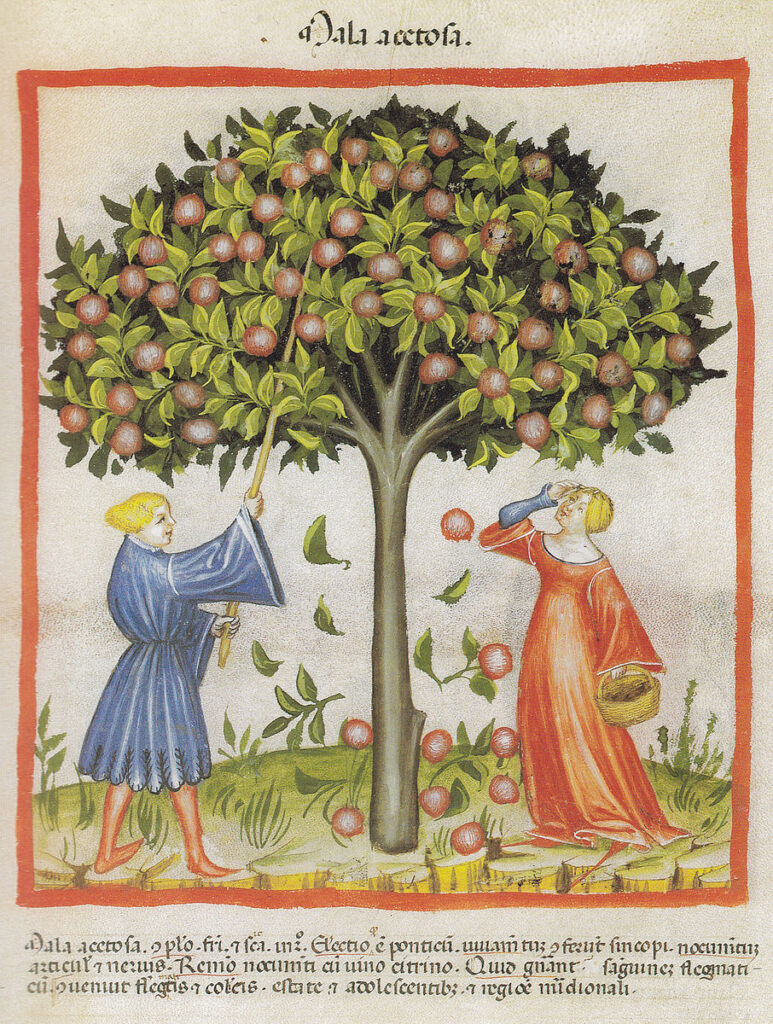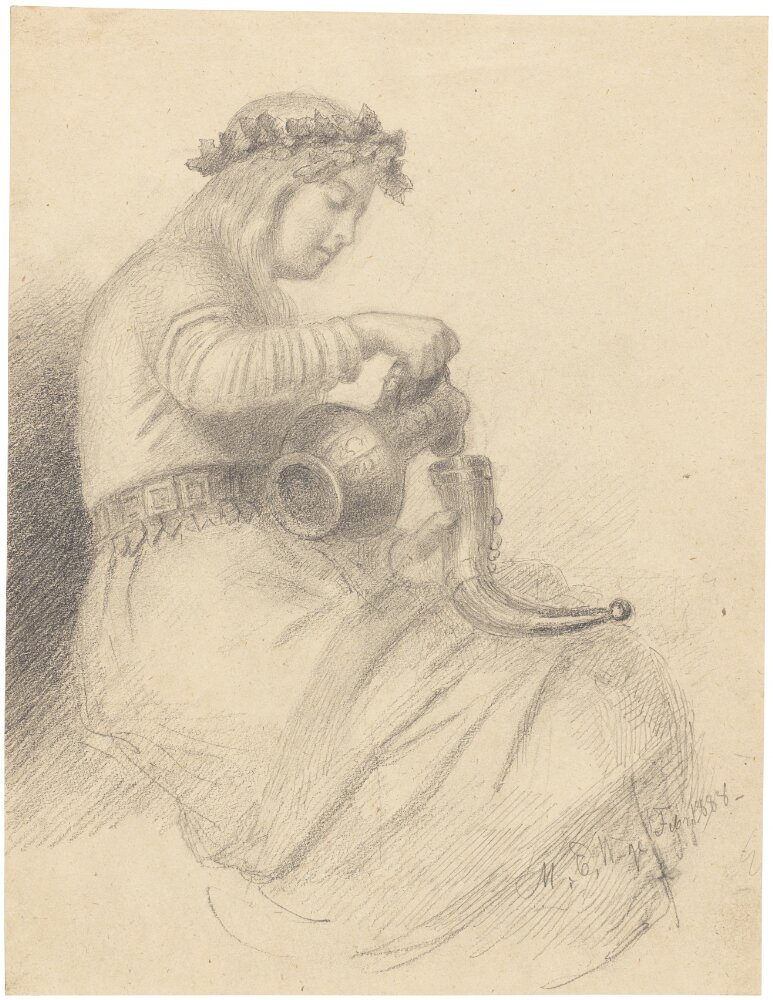Mulled cider is yet another favorite beverage for the Advent and Christmas season. Whether enjoyed around a roaring bonfire outside or at a Christmas party amongst friends, this rustic drink has a rich cultural history to rediscover. Knowing a little bit of the heritage will make it taste even better!
What is Mulled Cider?
Mulled cider is hard apple cider sweetened with sugar, infused with spices and served hot. It is much in the same nature as mulled wine–infused with cinnamon, cloves, anise and orange slices.
A Bit of History
Apples and apple products have a long and important role in European history. And why not? An apple tree is a perennial plant that doesn’t need to be sowed in order to get a harvest. An orchard can render several tons of high energy fruit every year. And all those natural sugars of the apples can then be fermented into a highly nourishing drink. The names for “apple” in the various languages of Northern Europe are all very similar–whether in a Germanic, Celtic, Slavic or Baltic language. That means that the fruit was well-known and used even before the various languages broke off and developed from the original prehistoric Indo-European tongue.

I like to think of cider as the “wine of the North”. In some places apples were more readily available than grapes, so the drink-culture was more apple-oriented. The region of Hessen in Germany (around Frankfurt) is especially known for its “Apfelwein” (apple wine) or Ebbelwoi in their local dialect.
During the Advent and Christmas seasons, this Ebbelwoi is used instead of wine to brew the beloved Glühwein.
Anglo-Saxon Cider and the Wassail
Apple cider has a long strong tradition in southern England. Cider was pressed in large quantities to quaff the thirst of farm laborers.
Wassail is an ancient word that comes from Old English (Anglo-Saxon) and Old Norse origins. Ah, this word is so beautifully complex! It embodies so many cultural aspects from the past. Let me try and summarize it for you.
The word comes from wæs hal which is a term of salutation that can mean “hail!”, or “be of good health!” A great example of this is in the Beowulf epic: When the hero Beowulf arrives at the Golden Hall of Hrothgar, he greets the king saying “Wæs þu, Hroðgar, hal!” (“Hail thou, Hrothgar!”).
You have to understand the importance of formal salutation in the Germanic cultures. It was a highly ritualized affair. This is because the concept of hospitality was also a vitally important bond in society. Arriving at someone’s farmstead, you would most likely have been formally greeted with a large bowl or drinking horn filled with beer or mead or cider (depending on the region, time of the year and wealth of the host). With this drink would come the formal toast of “Wæs hal!” To this, the proper response was “Drinc hal!”

During the Middle Ages, the custom of “wassailing” was popular in the Christmas Yuletide season. Offering a large bowl of mulled cider was a way of wishing wellness and good health to everyone. Peasants and and their lord mutually blessed each other with the bowl mulled cider. Folk drunk a wassail over their orchard, wishing good fertility for next year’s harvest.
A Simple Mulled Cider
To make a mulled cider, it is quite simple! You almost don’t need a recipe. It really depends on your personal taste of the sweetness and the spices. For about 6 servings of mulled cider, you’ll need:
- saucepan
- a 780 mL (about the volume of a wine bottle) of dry hard cider
- 90 g brown sugar or honey
- 4 cinnamon sticks
- a pinch of cloves
- 3 pieces of star-anise
- 4-5 orange slices
You can also experiment with other traditional holiday spices such as ginger, nutmeg and cardamon.
How much sugar you’ll need also depends on how sweet the cider is to begin with. Most ciders sold in the store (at least in the US) are pretty sweet to begin with (That is one reason why I prefer to make my own cider). When using of my home-made, dry cider, about 90g (also measured as a three “large dollops”) of honey suffices for 6 servings. You can, of course, use a sweet hard cider. But then you will not need as much sugar.
First, gently heat the cider on the stove or over the fire. Do not let it boil. Put in your spices and let them steep for at least 15 minutes. However, the longer the better. In fact, it is best if you can let it steep for an hour or even overnight. Next stir in your sugar or honey and let it dissolve. Taste it to test the sweetness and add more sugar, if necessary.
Also, remember that you can have a non-alcoholic option. Everyone should be included in the merriment! Simply apple juice instead. But because apple juice is sweet to begin with, be careful to add as much sugar.
Serve up in mugs to your family and guests and wish them wassail!
~ Nathanael


Leave a Reply